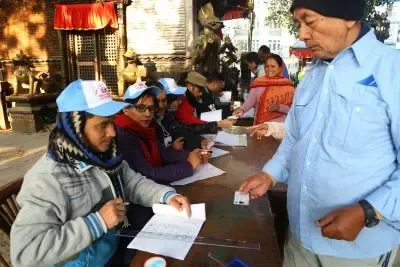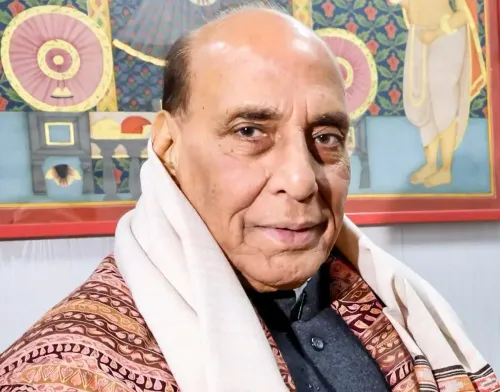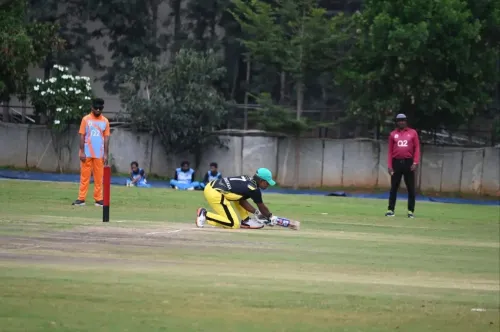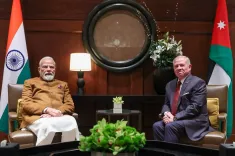Accountability or Blame: Missed Chance for Pakistan Military in Balochistan
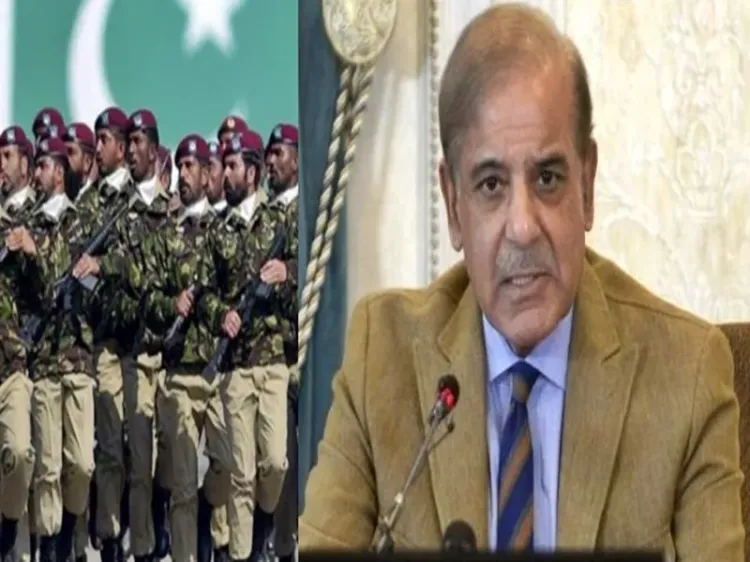
Synopsis
Key Takeaways
- Insurgent groups are increasingly bold in Balochistan.
- The military's blame-shifting undermines accountability.
- Internal grievances must be addressed for stability.
- Human rights abuses further alienate the Baloch population.
- Systemic reforms are essential for justice in Balochistan.
New Delhi: The magnitude and audacity of the assault on the Jaffar Express, a passenger train with over 400 individuals in the Bolan area of Balochistan, reflect the increasing boldness of insurgent factions within Pakistan. The incident, which involved explosives to derail the train and the subsequent hostage-taking of both civilians and security personnel, emphasizes the declining security landscape in unstable areas like Balochistan.
This act of violence highlights the escalating security crisis in Pakistan, as terror networks gain ground and state authority diminishes in precarious regions like Balochistan and Khyber Pakhtunkhwa. Despite the gravity of these challenges, the response from the Pakistani military has been characterized by efforts to manage the narrative instead of addressing the underlying issues. Rather than owning up to its shortcomings, the military has attempted to shift blame towards neighboring nations, specifically Afghanistan. This strategy endangers public trust and hinders progress in tackling the systemic problems fueling unrest and insurgency within the region.
The Balochistan Liberation Army (BLA) took responsibility for the hijacking of the Jaffar Express. The group claimed that its specialized units, including the Majeed Brigade, executed the attack, which involved derailing the train and taking hostages. The BLA characterized the operation as meticulously planned and claimed to have specifically targeted security personnel while releasing women, children, and Baloch passengers.
However, during a press conference on March 14, the Pakistani military, represented by ISPR DG Lt. Gen. Ahmed Sharif Chaudhry, continued its trend of deflecting accountability, making unsubstantiated claims to divert attention from internal security failures. The DG alleged that Indian media had initiated a disinformation campaign from the onset of the Jaffar Express hijacking incident.
To complicate the narrative, the ISPR described the train hijacking as part of a larger pattern of Afghan nationals engaging in acts of terrorism within Pakistan. He accused Afghanistan of orchestrating the attack while asserting that the primary sponsorship originated from Pakistan's 'eastern neighbor,' a thinly veiled reference to India. These allegations targeted both neighboring nations, framing the incident as an externally driven conspiracy against Pakistan.
This tactic exemplifies a desperate attempt by the Pakistani military to implicate external entities rather than confront the internal difficulties that have permitted insurgent groups to thrive. By concentrating on blame-shifting and narrative control, the military risks eroding public trust and evading the necessary accountability to address its diminishing authority in volatile areas like Balochistan.
Blaming India and Afghanistan has served as an expedient tactic for the ISPR to deflect responsibility for the Jaffar Express hijacking. Instead of focusing on rectifying the internal security failures that enabled the attack, the military sought to redirect attention outward, casting doubts on neighboring countries. However, this approach has been ineffective in addressing the fundamental issues and has attracted considerable criticism.
The ISPR faced sharp criticism for its delayed and ambiguous management of the incident. Despite the seriousness of the crisis, it failed to provide prompt updates or clear communication during the critical hours when accurate information was urgently needed. This lack of transparency not only heightened public anxiety but also created an information vacuum.
Insurgent factions like the BLA and others have intensified their assaults, targeting security forces, infrastructure, and non-Baloch laborers. In February 2025 alone, Balochistan accounted for 62 percent of terrorism-related fatalities in Pakistan, with 75 deaths in 23 attacks. These occurrences illustrate the growing audacity of insurgent groups and the state's failure to effectively curb their activities.
The Baloch populace has long endured marginalization and exploitation. Enforced disappearances, extrajudicial killings, and collective punishment have further alienated the Baloch community. The military’s reliance on force rather than addressing legitimate grievances has only exacerbated the crisis. Human rights organizations have documented instances of torture and extrajudicial killings. The military has largely dismissed these claims, framing them as necessary actions against insurgents. However, this stance has only deepened mistrust and resentment among the Baloch population.
In the aftermath of the Jaffar Express hijacking, Pakistan's military has claimed that other nations are also involved in incidents of enforced disappearances. Moreover, they have dismissed the issue of disappearances in Balochistan as unrelated to the hijacking, presenting it as an unjustified excuse for such actions. "People go missing globally, including in the US, UK, and India. They turn to their own forces and institutions," stated the DG ISPR.
Instead of acknowledging the grievances or expressing empathy toward the affected families, the military has opted to defend the practice of enforced disappearances, further alienating the Baloch community and intensifying criticism of their approach.
In response, Jalila Haider, a notable lawyer and human rights advocate, emphasized on X that the root cause of Balochistan's issues lies in the lack of access to justice. She stressed that addressing this fundamental issue is crucial for resolving the region's long-standing grievances. Her statement underscores the need for systemic reforms to ensure fairness, accountability, and the protection of basic rights for the people of Balochistan. She wrote, "Has forcibly disappearing people improved Balochistan's situation? Why not resolve 70 percent of Balochistan's issue by ending enforced disappearances and presenting the accused in courts?"
The Jaffar Express hijacking has revealed the state's inability to secure critical infrastructure and showcased the growing influence of militant organizations. Interestingly, prior to the Jaffar Express hijacking, Maulana Fazlur Rehman, a prominent Pakistani politician and cleric, made a notable statement in the National Assembly on February 18. In his address, he openly criticized the government, asserting that it had effectively lost control over vital regions such as Khyber Pakhtunkhwa and Balochistan. His comments highlighted the declining state authority in these areas, where insurgency, lawlessness, and governance failures have become increasingly prevalent.
The ongoing marginalization of the Baloch community, combined with the state's declining authority and oppressive measures, underpins the rise of terrorism in Balochistan. Decades of systemic neglect, exploitation of natural resources, and denial of fundamental rights have fueled resentment and alienation among the Baloch people. Instead of addressing these grievances, the Pakistani military has relied on heavy-handed approaches, including enforced disappearances and collective punishment, while refusing to accept accountability for its actions. This strategy has not only deepened mistrust but has also left the Baloch community with no legitimate means to express their concerns or seek justice. Consequently, insurgency and terrorism have surged, driven by a sense of desperation and the lack of meaningful alternatives. Without a shift towards accountability, justice, and inclusive governance, the cycle of violence is likely to continue, further destabilizing the region.
The insurgency in Balochistan is a guerrilla war waged by Baloch nationalists against the governments of Pakistan and Iran in the Balochistan region. Rich in natural resources like natural gas, oil, coal, copper, sulphur, fluoride, and gold, this is the least developed province in Pakistan. Armed groups demand greater control of the province's natural resources and political autonomy. Insurgencies by Baloch nationalists have occurred in 1948, 1958-59, 1962-63, and 1973-77, with an ongoing and reportedly stronger, broader insurgency beginning in 2003.
Baloch separatists assert that they are economically marginalized and impoverished compared to the rest of Pakistan. The Balochistan Liberation Army (BLA), designated as a terrorist organization by Pakistan, Britain, and the United States, is the most recognized Baloch separatist faction. Since 2000, it has executed numerous deadly assaults on Pakistani troops, police, and civilians. In August 2006, Nawab Akbar Khan Bugti was killed in clashes with the Pakistan Army, resulting in the deaths of at least 60 Pakistani soldiers and seven officers. The separatist insurgency peaked following the assassination of Bugti.
In October 2013, the group Jaish al-Adl (JAA, Army of Justice) killed 14 Iranian border guards in an ambush in the town of Rustak, near Saravan. Shortly after, Iranian authorities executed 16 Balochs on charges ranging from terrorism to drug trafficking. Another group, Harakat Ansar Iran (Partisan Movement of Iran, HAI) killed two Basij officers and injured numerous civilians in an October 2012 suicide bombing at the mosque of Imam Hussein in Chabahar (Sistan and Baluchestan Province).
However, since 2013, the strength and intensity of the insurgency have gradually diminished. The 2013 elections led to the formation of a coalition among Baloch and Pashtun ethno-nationalist political parties that governed the province for the next four years.
The insurgency further weakened since April 2016, as four militant commanders and 144 militants surrendered under reconciliation. Approximately 600 rebels were killed and 1,025 surrendered after accepting reconciliation in August 2016. In April 2017, another 500 Baloch rebels surrendered to the state, including members of the Baloch Republican Army (BRA), United Baloch Army (UBA), and Lashkar-e-Balochistan (LeB). Other separatist factions in Balochistan include BLA, Baloch Liberation Front (BLF), Baloch Students Organization (BSO), and the Baloch Liberation United Front (BLUF). A Baloch leader, Saleem Baloch, who remained affiliated with the armed resistance against the state for over 20 years, decided in September 2020 to join mainstream politics.
(Deepak Kumar is a security and strategic affairs analyst specializing in geopolitics and geo-economics. The views expressed are personal.)


